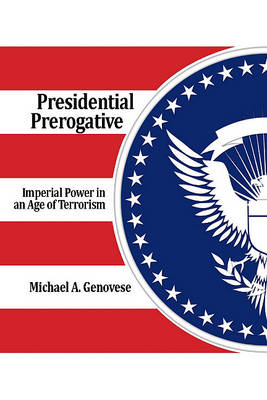In the aftermath of the tragic September 11, 2001 attacks against the United States, the Bush administration acted boldly and often unilaterally to thwart terrorism at home and abroad. At the time, the President's actions were legitimized by claims that the President had broad constitutional powers in the areas of war and foreign policy. These claims were bolstered in a series of the Justice Department's Office of Legal Counsel memos claiming that the President's actions in this area were "nonreviewable" by other branches. The subject of widespread debate and outrage, the legal rationales offered seemed to violate the concept of checks and balances built into the United States Constitution. This work examines the evolution of claims of independent executive power by exploring the roots and development of executive prerogative in America. The author traces the concept back to its British use and the theories that animated prerogative in England, as well as whether prerogative was "Americanized" by the founders.
He further explores where one might find constitutional or legal support for prerogative, how the concept and practice of prerogative has evolved over time, the extent to which the Bush presidency mirrors or departs from previous examples of presidential prerogative, and finally, whether "necessity" is a legitimate reason to adopt prerogative. Balanced, well-written, and authored by one of the most highly regarded presidency scholars in the United States, this work is the first to deeply explore the roots and evolution of prerogative and its application in the age of terrorism. It is ideal for use in courses on the American presidency, presidential power, and constitutional law.
- ISBN10 0804762961
- ISBN13 9780804762960
- Publish Date 4 November 2010
- Publish Status Out of Print
- Out of Print 28 March 2015
- Publish Country US
- Imprint Stanford University Press
- Format Hardcover
- Pages 216
- Language English
